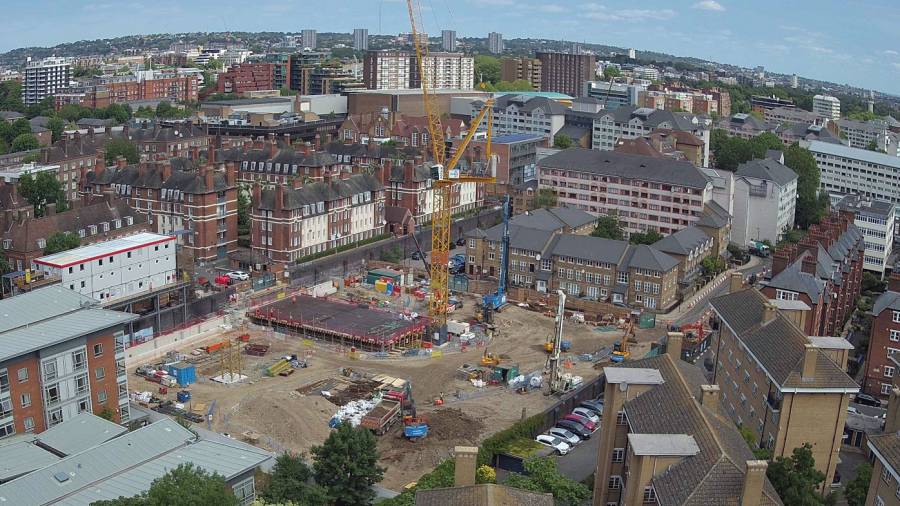Decarbonising our homes: a view from the North
The global health crisis may be dominating the headlines but the urgent need to tackle climate change has not gone away

STRATEGY
Image: Istock

Tracy Harrison
Chief Executive, Northern Housing Consortium
The North has always been at the forefront of major shifts. From the world’s first railways to the discovery of graphene, our region has a proud history of being at the cutting edge whenever there is a problem to solve, or new ideas are needed.
That has certainly been in evidence in recent months as councils, housing associations and arm’s-length management organisations (ALMOs) across the North have risen to the challenges posed by COVID-19. But, long before the word ‘furlough’ entered common parlance and we all started monitoring ‘R-numbers’, we faced another existential challenge: climate change.
Climate emergency
Climate change hasn’t gone away, and here too, the North has been at the forefront. More than 60 of the Northern Housing Consortium’s local authority members have now declared climate emergencies. They have set ambitious targets to make their own operations net zero-carbon and, in many cases, to lead the way to make their whole district carbon-neutral.
To make a district carbon-neutral means acting on emissions from our existing homes. The homes we live in are responsible for 26% of all carbon emissions across the North. In some places this is much higher – with some districts reporting domestic emissions as high as 40% of the total.
Many Northern homes older and colder
That is understandable when you consider the North’s housing stock, which is older and colder than the national average. One in four of our homes were built before 1919, and these are far less energy-efficient. The average carbon output from our pre-1919 homes is around 7.2 tonnes, compared to around 3.6 tonnes in post-1990 properties.
This presents a huge challenge, and it means housing is right back at the top of the corporate agenda in many local authorities. Responding to the challenge of climate change means improving the fabric of homes so they don’t leak heat. And it means switching home heating to renewable sources, with installation of new gas boilers to stop after 2025 under current government plans. To get an idea of the scale, consider the fact that in Greater Manchester alone, 60,000 buildings will need to be retrofitted each year to meet that city-region’s ambitious target of becoming carbon-neutral by 2038.
26% of all carbon emissions across the North come from homes.
Some districts report domestic emissons as high as 40%.
1 in 4
northern homes were built before 1919

3.6 tonnes
average carbon output from post-1990 homes

7.2 tonnes
average carbon output from pre-1919 homes

26% of all carbon emissions across the North come from homes.
Some districts report domestic emissons as high as 40%.
1 in 4
northern homes were built before 1919

3.6 tonnes
average carbon output from post-1990 homes

7.2 tonnes
average carbon output from pre-1919 homes

Coronavirus and climate change
COVID-19 cannot be allowed to delay this important work. The Chancellor, Rishi Sunak, has warned us that we face “…a severe recession, the likes of which we have not seen”. There is a real risk that this economic downturn stalls momentum on two key government priorities: the national transition to net zero-carbon emissions; and the levelling-up agenda that was responsible for the government’s electoral gains in the North of England in the most recent general election.
“De-carbonisation is labour-intensive work: getting our homes to EPC Band C at a steady rate would create 20,000 jobs per annum in the North”
Accelerate the transition to net zero-carbon
That is why the current crisis must instead provide the impetus to accelerate the transition. De-carbonisation is labour-intensive work: getting our homes to EPC Band C at a steady rate would create 20,000 jobs per annum in the North. It would draw on construction product supply chains where we know the North has existing strength. As the Committee on Climate Change notes in its advice to the Prime Minister, it also has direct social benefits of creating more comfortable homes, leading to improved wellbeing and health. Bringing this work forward to kick-start a COVID-19 economic recovery in the North is a win-win for all levels of government.
The NHC has been consulting with our members on what this means in practice. We believe that the experience our members have developed in recent months means it is possible to complete retrofit work in a manner compatible with social distancing. The government should expand the ambition of planned initiatives like the Social Housing Decarbonisation Fund and Home Upgrade Grants and bring them forward to provide an immediate economic stimulus.
The message is loud and clear: the North shares the government’s net-zero ambition. Delivery depends on decarbonising our homes. That work could start now, create thousands of jobs, and help safeguard the levelling-up agenda. Over to you, Chancellor.


